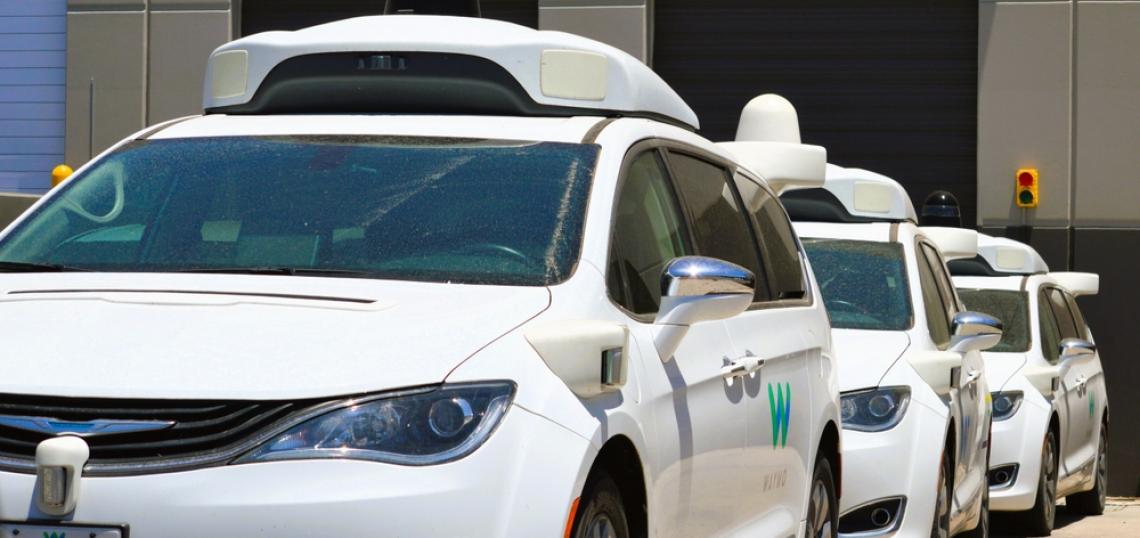Despite the recent pulling of California's Cruise robotaxis from (and in light of its possibly imminent return to) Austin streets, the city seems destined to remain a somewhat lawless proving ground for driverless vehicles. Alphabet-owned Waymo, AV Ride, and ADMT Volkswagen are just some of the companies that have sent their driverless fleets to roam the Texas capital — usually starting with downtown — and all are still operating in the city.
Austin's Downtown Commission Monday received a briefing on those inevitabilities at a Monday meeting, where commissioners heard from transportation and public works department staff about the city's plans to regulate operations and offered suggestions of their own.
The discussion included a conversation about how the city of Austin can hold operators of autonomous vehicles accountable.
“Under Texas law, citing an autonomous vehicle means issuing the citation to the owner of it. The owner in the case of Cruise is in San Francisco,” said the city's Rachel Castignoli. Because of that law, said Castignoli, Austin is working with the Texas Department of Transportation and other cities with autonomous vehicles on their roadways to come up with a common set of practices for addressing traffic violations.
“So, in the meantime, we don’t have a good system to hold them accountable. Is that the fact?” asked commissioner Amy Mok.
“Right now we don’t have a process for a citation since there is not a driver in the vehicle," said Castignoli. “but I believe we could legally cite them."
A 2017 state law strips local municipalities of the authority to regulate autonomous vehicles. Companies that operate them are not obligated to disclose a lot of information that would help address safety and other issues already amply in evidence from initial deployments.
The city is looking for ways to address the issues AVs have with movement around emergency vehicles, recognizing police directing traffic, and allowing public safety staff to take over control of a vehicle in emergency situations. Specific Austin problem points include the Moody Center during events and the city’s fire station on Martin Luther King Jr. Boulevard.
In July, the city created an AV safety working group to gathers data to identify hot spots and frequent issues, but its research is limited by whether or not a company chooses to divulge information about its vehicles.
“We’ve taken the AV companies to these spots, walked around, talked through the issues and we’ve watched some of the videos recorded from the AVs," said Castignoli. "We’ve been able to resolve some of the issues, including creating an exclusion zone around emergencies so they don’t wander into areas where there’s a lot of traffic and a lot of pedestrians, especially UT football games,”
“Have you ever asked an AV for data and they’ve come back and said no?" asked commissioner and urban transportation and council liaison Spencer Schumacher.
“We have asked to view video and they have said no,” said Castignoli.
In response to a question about what data city staff would like to have, she said ready access to all video from a vehicle involved in a safety incident would be ideal. Other desirable data would be the full-coverage maps for each company’s operations, as well as more complete information about incidents tracked by the operators but not reported to the city.
As an example, Castignoli said collision data that the companies are required to report to the National Transport and Safety Authority showed there were 10 AV crashes in the city in 2023, while the city’s records showed only five.
Commissioner Jen Weaver said she would like all AVs to be more distinctly marked so residents could easily identify what specific vehicle is involved in a safety incident when calling the city’s 311 line.
“They do have the name kind of coyly placed in a nonstandard identification spot,” she said. “If the AV companies were serious about building relationships with the public, they would be more interested in that communication.”
Schumacher said he’d like the city to be able to analyze how many incidents an average ride-share AV is involved in relative to the total number of drivers.
“We’ve had 78 people die in Austin this year because of collisions with vehicles. If you told me autonomous vehicles would lower that to 77, I’d hit that button right now,” he said.






